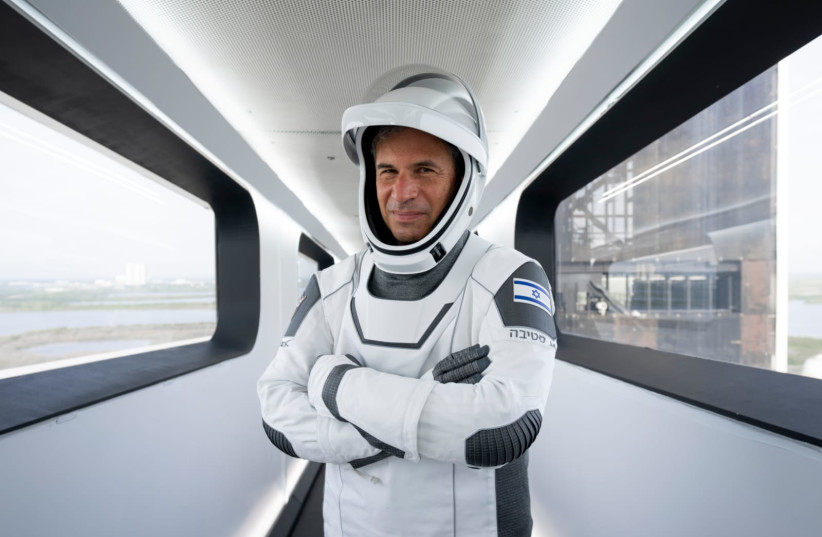Can you light Shabbat candles in space? A group of fourth-grade Israeli children hope to find out.
The children won a contest against 70 other groups and were given a special lesson by Israeli astronaut Eytan Stibbe on Wednesday live from the International Space Station (ISS).
The students of the Orthodox Dibrot Moshe School in Jerusalem have participated in STEM (science, technology, engineering and math) classes given by the Baba-Da Educational Institution. They participated in a contest sponsored by the Rakia Mission of the Ramon Foundation that focused on space.
Stibbe is a former IDF fighter pilot and a successful businessman. He signed a deal with Axiom Space to fly a 10-day mission to the ISS aboard a SpaceX Crew Dragon spacecraft on Axiom Mission 1, a privately crewed orbital spaceflight.
Baba-Da’s founder Michal Ivgi told The Jerusalem Post, “The topic of the lesson and experiment that Stibbe will be giving the students is titled ‘Lighting Shabbat Candles in Space – the Halacha and Science challenge.’”

Ivgi said, “The halachic situation of praying times in space is simple: You pray at the time of the country you took off from – in Stibbe’s situation it’s the US.”
Yet the question of how to light Shabbat and Hanukkah candles in space is more complicated.
“NASA did about 200 experiments of lighting candles in space,” Ivgi explained, “It turns out that in space the flame looks different; it’s small, round and blue. Although the combustion is slower, they have not been able to burn for more than 20 minutes in space.”
According to the Jewish law, Shabbat candles should be lit before Shabbat starts and stay lit until the end of the Friday night dinner. Hanukkah candles should stay lit for half an hour.
“Twenty minutes aren’t enough time in order to fulfill the mitzvot of Shabbat and Hanukkah candles,” Igvi said. “We tried to research and understand why the fire won’t last longer in space. Some may think that it is because of a lack of oxygen, but that’s not the case since the space station has oxygen. It turns out that the problem is conditions of microgravity. This affects the duration of the flame and its shape.”
Ivgi and her team created a contest in conjunction with the Pico Kids organization in Jerusalem in order to try and find a solution for this unique halachic situation.
“We created a possible solution for making the candles stay lit longer than 20 minutes, with a special fan, and solved the matter of gravity. We have built an actual solution that we hope will solve the problem,” Ivgi explained, thanking Pico Partners founder Elie Wurtman.
Baba-Da is a non-profit organization offering first through ninth grade students an experiential curriculum in the field of STEM. The program operates during school hours and sessions take place once a week for 90 minutes in small groups.
The program began five years ago. To date, more than 2,500 boys and girls from a variety of Orthodox communities across the country have participated. Baba-Da was founded by Mobileye president and CEO Prof. Amnon Shashua, and is supported by the Maimonides Fund and the Kirsch Foundation. Rabbi Stanley Peerless, a former US school principal, educator and scientist, assisted Ivgi in creating the curriculum about Judaism and space.
Igvi added, “We hope that one day there will be an observant astronaut who lives according to the Halacha. A religious astronaut will be able to further research the possibility of living as an Orthodox Jew in space.”
